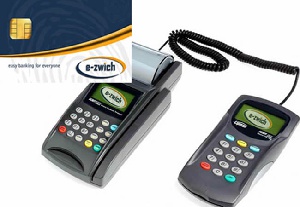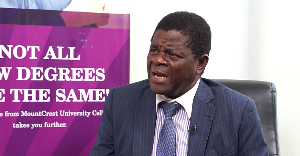The National Service Scheme (NSS) continues to benefit from the use of e-Zwich to pay allowances of personnel.
The scheme opted for the use of the biometric electronic payment system in 2015 and made a savings of about GH¢170 million due to the detection and removal of ghost names and duplications from the payroll.
Two years on, allowances paid to the National Service personnel continues to come from the savings made, with some GH¢60 million still available.
Acting Executive Director of the National Service Secretariat, Mustapha Ussif, who disclosed this in an interview, said the e-zwich system has helped cleaned up the payroll and it’s helping ensure that the allowances are paid to the intended persons.
Mr Ussif spoke of his resolve to ensure that the Secretariat operates effectively and efficiently.
He said NSS was determined to ensure the smooth operation of the scheme and that only the right people get paid the allowances.
He commended the Ghana Interbank Payment and Settlement Systems (GhIPSS) for the initiative and suggested if they could device a system that will enable funds that are not accessed on the cards to be recalled automatically.
The success chalked with the payment of National Service allowance with e-Zwich encouraged government to extend the payment system to other institutions such as the Youth Employment Agency and lately the trainee teachers and nurses allowances, leading to a significant increase in the number of e-Zwich card users to about 2.3 million
Deputy Executive Director of NSS Gifty Oware-Aboagye, on her part, explained that the use of the e-Zwich has also prevented people from reapplying to the Scheme with different identities as was the case previously.
She said the biodata of such people gave them up and they were immediately taken off.
Chief Executive of GhIPSS, Archie Hesse, commended the management of the NSS for the effective manner they have allowed the payment system to work.
He said GhIPSS will continue to work with the Secretariat to explore other means to ensure that they always derive the maximum benefit of the e-Zwich payment system.
He suggested that part of the savings that government makes through the use of e-Zwich could be used to support the purchase of additional hybrid Point of Sales devices so that e-zwich cardholders such as the National Service men and women can have more outlets to use their cards.
Mr Hesse encouraged private organisations to also use e-Zwich for the payment of various emoluments because it’s safe, quick and helps clean up payrolls.
Business News of Sunday, 29 October 2017
Source: dailyguideafrica.com



















